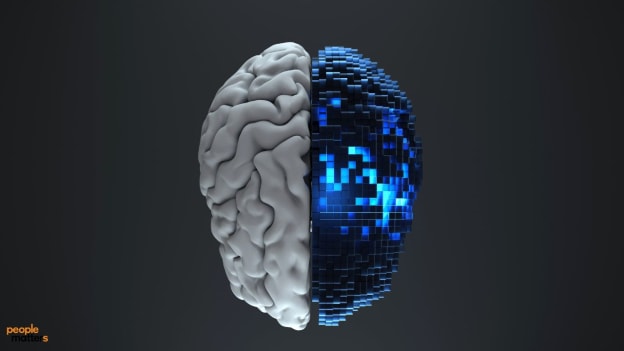How AI revolutionises recruitment in Southeast Asia

Artificial Intelligence is challenging traditional recruitment methods in the competitive talent market of Southeast Asia.
Singapore and Malaysia are some of the regional leaders in AI adoption in the HR space, while Indonesia and the Philippines are building more infrastructure to accommodate increased AI adoption.
AI-driven HR in Southeast Asia
A 2023 study by HR software provider Employment Hero found 98% of HR leaders in Singapore are already using some form of AI tool. Most HR leaders in the city state are reportedly leveraging AI to identify and report on employee data trends.
Other use cases of AI among HR professionals in Singapore include creating HR content, automating tasks, and monitoring compliance.
In Malaysia, the government has rolled out a roadmap to ramp up the usage of AI. Economists there expect AI to increase the country’s gross domestic product by 26% in the next 10 years.
A separate study also found Malaysian HR professionals use AI to increase their speed and efficiency, improve performance and productivity, and enhance analytics.
Meanwhile, AI usage in both Indonesia and the Philippines has been on the rise as well. Market insights from Statista showed an estimated 1.3 million AI users in Indonesia in 2024, a number projected to grow to 3.3 million in 2030. In the Philippines, at least 86% of knowledge workers have adopted AI. Both countries are currently boosting their capacity to increase AI adoption in various industries, including HR.
Read More: Microsoft AI training to empower 2.5 million in ASEAN
How AI-powered tools are transforming talent acquisition
Southeast Asia’s recruitment landscape is undergoing a tech-driven makeover, and AI tools are at the forefront of this transformation. These tools leverage machine learning, natural language processing, and data analytics to revolutionise how companies identify, assess, and engage with talent.
Intelligent candidate screening
Gone are the days of relying solely on resumes to assess candidates. AI-powered tools now delve deeper, using algorithms to scan resumes, social media profiles, and portfolios for relevant skills, experience, and even personality traits. Some platforms go a step further, employing AI to analyse video interviews, gauging candidates’ communication skills, body language, and cultural fit. This multi-faceted approach to screening ensures that companies identify not just qualified candidates, but those who are truly aligned with the company’s values and goals.
AI for enhanced job-candidate fit
One of AI’s most promising applications in recruitment lies in its ability to match the right talent to the right roles. Advanced algorithms go beyond keyword matching, analysing a vast array of factors such as skills, experience, education, and even personality traits to identify candidates whose profiles align with specific job requirements. This not only accelerates the hiring process but also increases the likelihood of long-term success and employee satisfaction.
Automating time-consuming tasks
Perhaps one of the most appealing aspects of AI in recruitment is its potential to automate tedious and time-consuming tasks. AI-powered chatbots can handle initial candidate interactions, answering questions, scheduling interviews, and even collecting feedback. AI can also have automated resume screening, saving recruiters valuable time and allowing them to focus on higher-level tasks such as building relationships with candidates and making strategic hiring decisions.
Read More: The journey of AI adoption in ASEAN countries
Keeping the ‘human’ aspect of HR in the age of AI
While the benefits of AI in recruitment are undeniable, AI adoption also raises important questions and concerns. Some worry that AI could dehumanise the recruitment process, leading to biassed or unfair decisions. Others fear that AI could replace human recruiters altogether, leaving job seekers feeling disconnected and undervalued.
One of the most pressing concerns is the potential for AI to perpetuate or even amplify existing biases in the hiring process. If AI algorithms are trained on biassed data, they can inadvertently discriminate against certain groups of candidates based on factors such as gender, race, or age.
To address this, companies must prioritise ethical AI implementation, ensuring algorithms are trained on diverse and representative data sets. Additionally, regular audits and human oversight are crucial to identifying and correcting any potential biases.
Moreover, while AI can automate many tasks, it cannot replace the human touch entirely. Building relationships with candidates, understanding their motivations, and assessing their cultural fit are all areas where human recruiters excel. AI should be seen as a tool to augment human capabilities, not replace them.
By collaborating with AI, recruiters can focus on high-value activities such as building rapport with candidates, providing personalised feedback, and making informed hiring decisions based on a holistic view of the individual.
The key to successful AI implementation in recruitment lies in finding the right balance between efficiency and empathy. While AI can streamline the process and improve decision-making, it’s important to remember that job seekers are not just data points. They are people – with unique aspirations, skills, and experiences.
By combining the power of AI with the human touch, companies can create a recruitment experience that is both efficient and engaging, ensuring that candidates feel valued and respected throughout the process.
















